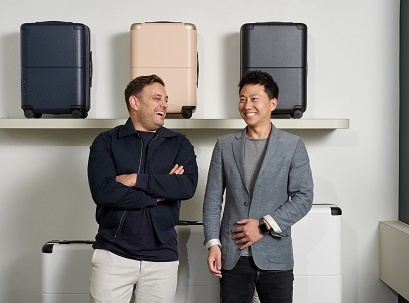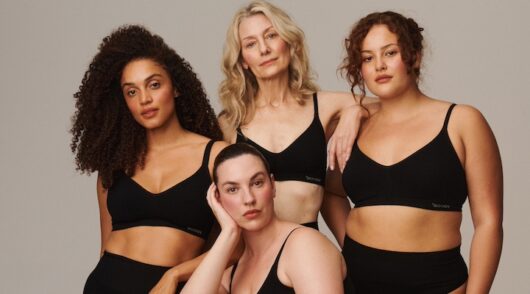
Direct-to-consumer luggage brand July has received $10.5 million from investors, including $8 million from Strandbags’ owner Michael Lewis, to take on luggage giant Samsonite.
The online retailer, which opened its first bricks-and-mortar store in Melbourne Emporium in August, says it will use some of the capital to launch in Singapore by the end of the year. It also plans to launch in New Zealand in the next six months and further Asia Pacific markets in 2020.
“We’re not just opening stores [in these markets],” Athan Didaskalou, July’s co-founder, told Inside Retail. “We’re setting up warehousing and local teams.”
According to Didaskalou, Australian brands that operate in Asian markets remotely are “arrogant”.
“They think they can do everything from Australia,” he said. “It’s not just about [providing] local delivery and customer service, it’s about understanding the mindset of the country you’re in.”
The elephant in the room
The retailer, which currently offers three sizes of hard-shell suitcase – carry-on, checked and ‘plus’ – is investing the rest of the capital into product development. Didaskalou declined to provide specific details about forthcoming products, but said they would “shock” market leader Samsonite when released next March.
“Samsonite is known for being ‘strong and light’. We’ll be tackling them on that ground,” he said.
Didaskalou said the company is more focused on taking market share from Samsonite than competing with US-based direct-to-consumer rival Away, which entered the Australian market via a Sydney pop-up earlier this year.
“Everyone wants to either talk about Away or Horizn Studios,” he said, referring to a Berlin-based brand in the same vein as July and Away, which was valued at more than US$1.4 billion this year.
“The elephant in the room is the 90 per cent market share-holder, which is Samsonite,” he said.
“They own something between 10 and 15 brands and absolutely dominate the market, especially in Asia Pacific. These are the people we’re going after.”
July has another trick up its sleeve. The brand has developed a new method of monogramming its suitcases using ultraviolet light, which will enable the retailer to offer new fonts and designs from artists and personalise products at scale. It currently takes about an hour to hand paint each design.
The new system will launch in three weeks, and Didaskalou anticipates being able to personalise every suitcase it sells in 2020.
Working towards profitability
Didaskalou said he and fellow July co-founder Richard Li, who also co-founded online furniture brand Brosa, have received “phenomenal” insights and advice on the luggage business from Felicity McGahan,
Strandbags’ managing director, and Lewis, its owner.
“I wouldn’t say it was a formal part of the deal for them to mentor us, it was more that they really know the space and wanted to help support [us],” he said.
Strandbags currently is undergoing a digital transformation, and July is providing the bricks-and-mortar retailer with feedback on how it could operate better online and what today’s customers want in terms of delivery and e-commerce, according to Didaskalou.
July is on track to reach $5 million in sales this year, its first full-year in business, and working towards profitability. The company is in the process of opening new stores in Melbourne, Sydney and Singapore, and employs 24 people. It will continue to sell its products exclusively through its own channels.






